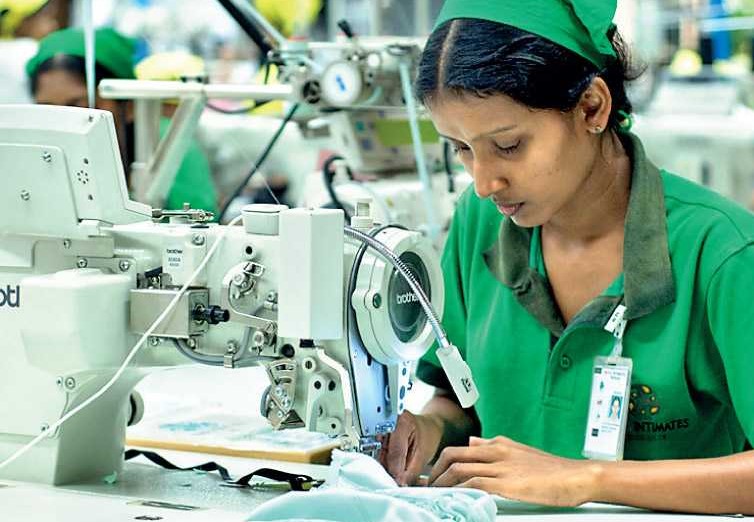The apparel industry fears job losses owing to the COVID-19 pandemic-led downturn in business will be far worse than expected, as order books beyond August are bleak.
Joint Apparel Association Forum (JAAF) estimates that close to 100,000 people engaged in the industry will be unemployed owing to COVID-19 pandemic impact with multiple waves experienced in major markets, which are continuing with restrictions on mobility and events.
“Our forecast on job loss is about 80,000 to 100,000 across the board. Beyond that, it all depends on how flexible the industry can be,” JAAF Chairman A. Sukumaran told the Daily FT.
Around 300 garment factories employ 990,000 and over one million people are indirectly dependent or employed.
He pointed out that when the capacity drops by 35% to 40%, which is around $1.5 to $2 billion, it was not economically viable for the factories to have the same level of employees.
JAAF is also of the view that despite picking up in recent months, apparel exports for the entirety of 2020 are likely to be $ 2 billion lower than last year. Revised forecast is that apparel export earnings to decline by 40% which is about $ 2 billion and in the best case scenario earnings to drop by $ 1.3 billion to $ 3.3 billion by the year end.
Sri Lanka last year earned $ 5.3 billion from apparel exports, an increase of 5.1% from 2018. Prior to the COVID-19 pandemic the industry originally expected a 6% increase in exports for 2020.
Sukumaran cautioned that the crisis would have a massive impact on poverty. “Large companies have the capacity to survive for another couple of months, but the small factories are very vulnerable because the business model they operate is very different and heavily dependent on orders. Employees of larger companies took a 50% pay cut during the lockdown period, but those who worked for small and medium companies have more difficulties,” he opined.
Given the global COVID-19 crisis situation, nobody is able to accurately forecast future orders, he said, adding that the markets were yet to fully open. “Until markets open properly and consumers return to normal shopping habits we have to work with this uncertainty,” Sukumaran said.
He said the biggest concern right now was any second wave or another lockdown in any of the top key markets including the US and the EU. “The situation is unknown now. We are 100% dependent on the US and EU markets. If these two markets get affected again then we are in real trouble,” JAAF Chief said.
He said Sri Lanka took proactive measures and imposed strict controls to contain the spread of COVID-19 with aggressive contact tracing despite some gaps in testing and has since largely opened economic activities to resume subject to health guidelines and social distancing.
Sukumaran also said a host of their customers were still monitoring the situation in Sri Lanka as well before placing any new orders.
However, the JAAF Chairman said there was a ray of hope if the markets opened up. “It all boils down to how soon the markets will open up completely. If the markets remain open, there is a chance that we might get the orders our way towards the latter part of the year. But because of the uncertainty we cannot give a proper forecast,” he added.
